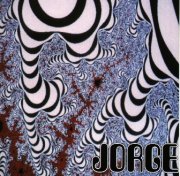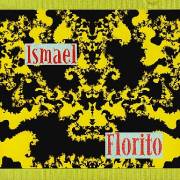JORGE RIESCO
Interview by Jorge Munnshe
Jorge
Riesco is an artist with a wide musical vision, whose music goes beyond the
conventional, breaking barriers among styles and communicating a wide range of
feelings and emotions.

We could begin with a little history. How did your interest in music start? And your vocation as a composer? Do you feel or have you felt influenced by some artists or bands that in a way might have contributed to your artistic education?
My interest started more or less spontaneously when I was at high school, maybe at age 13 or 14. By that time I asked my parents for a guitar as a Christmas present. Since I didn't know how to play it or even less tune it, from the first day I devoted my time to composing. I do not consider myself to be a "fan" of any given artist. I listen to a wide variety of music, some works I like best, others less so. If I can, I purchase the scores of the works I like and study them. I always learn something. Therefore, my influences are probably varied but likewise diffuse.
Would you define your music in some way? Do you consider yourself linked to any given musical trends or genres?
I don't worry about being linked to any given musical genre. More or less, I follow a style that could be labelled as progressive, electronic or new age. Yet this could as well change.
How was your first album, "Jorge", elaborated? Was it the result of the progressive accumulation of ideas during a long time or rather the consequence of your creativity working during a given period of time?
It came when the sound cards appeared, and with them, the possibility to play a voice to a score, record it, return to the beginning, and as this voice sounded in an acceptable manner, play a second voice, and a third, and a fourth. I had already tried to record a voice on a cassette recorder, rewind and play the second voice, but that sounded awful. I guess that anyone who has tried to use a casette some time to play live music knows what I mean.
For a time I enjoyed my sound card and slowly it occurred to me I could release an album. When I decided on that, I bought a synthesizer and a digital recorder and started to work. I thought about doing a CD that lasted approximately for about an hour, alternating slow and fast parts. Then I composed most of the music for this album, although I also used some fragments from former years. The total time invested in my project was approximately eight months.
 How did you get the idea of composing this
album with poems by Ismael Florito?
How did you get the idea of composing this
album with poems by Ismael Florito?
Ismael participates with some frequency in poetic events. He brought me a folder with the texts of his latest recital and asked me to write some music to use as background. When I had the music ready I showed it to him and then we thought we could release the album. I selected some texts from his folder. We looked for some readers and recorded their voices. Due to a series of adverse circumstances the readers could not rehearse their parts previously to the recording, so we got a spontaneous result. (As far as I know, this is the only album to ever include a mistake page)
Do you compose following a given process?
I utilize diverse processes. Here are some: Traditional composition writing on a score sheet, improvisation, computer generated melodies, and all sorts of tricks and variants I know of, or that I may think of. I even use mistakes. Once I kept a score in my computer. Then I touched a wrong set of sequence keys and the score was completely deformed. And it had become far more interesting than the original theme!
Do you think that Internet is going to change the structure of the musical industry? Do you believe that Internet is going to force the most powerful sectors of the label industry to bet less for the archifamous musician anchored on a comfortable commercial value and more for such artists as those who risk their careers doing new things?
Internet allows any artist, however strange this may seem, to become known at an international level. And probably it's just this. I do not believe that any structure is going to change in the short term. I guess that the most commercial music is going to get a tremendous push.
Tell us about your current activities. Are you working on a new album or preparing some other kind of project?
I already have several fragments that I could record a new album with, perhaps even two. I may release a new CD betweeen this fall and winter.
If some reader feels interested, you can listen to fragments of Jorge Riesco's albums here:
http://www.mp3.com/JorgeRiesco
 Previous page (Articles)
Previous page (Articles)

